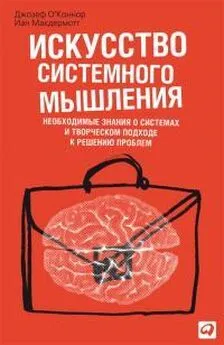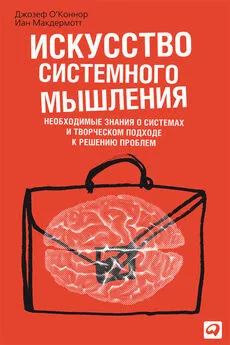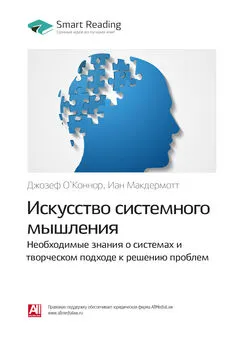Джозеф Халлинан - Почему мы ошибаемся? [Ловушки мышления в действии] [litres]
- Название:Почему мы ошибаемся? [Ловушки мышления в действии] [litres]
- Автор:
- Жанр:
- Издательство:Литагент МИФ без БК
- Год:2017
- Город:Москва
- ISBN:978-5-00100-787-6
- Рейтинг:
- Избранное:Добавить в избранное
-
Отзывы:
-
Ваша оценка:
Джозеф Халлинан - Почему мы ошибаемся? [Ловушки мышления в действии] [litres] краткое содержание
На русском языке публикуется впервые.
Почему мы ошибаемся? [Ловушки мышления в действии] [litres] - читать онлайн бесплатно ознакомительный отрывок
Интервал:
Закладка:
Gilovich T., 1983, Biased Evaluation and Persistence in Gambling, Journal of Personality and Social Psychology 44 (6), pp. 1110–1126.
Gilovich T., 2007, Author interview.
Gilovich T., Victoria Husted Medvec, and Serena Chen, 1995.
Commission, Omission, and Dissonance Reduction: Coping with Regret in the «Monty Hall» Problem, Personality and Social Psychology Bulletin 21 (2), pp. 182–190.
Glenberg A. M., and William Epstein, 1985, Calibration of Comprehension. Journal of Experimental Psychology: Learning, Memory, and Cognition 11 (4), pp. 702–718.
Godden D. R., and A. D. Baddeley, 1975, Context-Dependent Memory in Two Natural Environments: On Land and Underwater, British Journal of Psychology 66 (3), pp. 325–331.
Goldberg C., 2005, If You Don’t Find It Often, You Don’t Often Find It, Boston Globe, May 31, p. C1.
Goldberg L. R., 1968, Simple Models or Simple Processes? Some Research on Clinical Judgments, American Psychologist 23, pp. 483–496.
Golledge R. G., ed., 1999, Wayfinding Behavior: Cognitive Mapping and Other Spatial Processes, Baltimore: Johns Hopkins University Press.
Gonzalez V., and Gloria Mark, 2004, «Constant, Constant, Multi-tasking Craziness»: Managing Multiple Working Spheres, 2004, Proceedings of Human Factors in Computer Systems, Vienna, 6 (1).
Gowen A., and Lila Arzua, 2004, 10 Teens Hurt as Tour Bus Slams into Overpass, Washington Post, Nov. 15, p. B1.
Gramzow R. H., Greg Willard, and Wendy Berry Mendes, 2008, Big Tales and Cool Heads: Academic Exaggeration Is Related to Cardiac Vagal Reactivity, Emotion 8 (1), pp. 138–144.
Green P., 1999, Visual and Task Demands of Driver Information Systems, Technical report UMTRI-98-16, Ann Arbor: University of Michigan Transportation Research Institute.
Green P., 2004, Driver Distraction, Telematics Design, and Workload Managers: Safety Issues and Solutions, Convergence Transportation Electronics Association.
Greenberg R. N., 1984, Overview of Patient Compliance with Medication Dosing: A Literature Review, Clinical Therapeutics 6 (5), pp. 592–599.
Greene T., and Helga Noice, 1988, Influence of Positive Affect upon Creative Thinking and Problem Solving in Children, Psychological Reports 63, pp. 895–898.
Grinblatt M., and Matti Keloharju, 2008, Sensation Seeking, Overconfidence, and Trading Activity, Working paper available at www.anderson.ucla.edu/documents/areas/fac/finance/06–06.pdf.
Grow B., 2005, The Great Rebate Runaround, BusinessWeek, Nov. 23.
Gruneberg M. M., P. E. Morris, and R. N. Sykes, eds., 1978, Practical Aspects of Memory, London: Academic Press.
Hagerty J. R., and Kemba J. Dunham, 2005, How Big U.S. Home Builders Plan to Ride out a Downturn, Wall Street Journal Online, Dec. 1.
Hallenbeck C., 1920, Forecasting Precipitation in Percentages of Probability, Monthly Weather Review 48 (11), pp. 645–647.
Hallinan J. T., 2005, Heal Thyself: Once Seen as Risky, One Group of Doctors Changes Its Ways, Wall Street Journal, June 21, p. A1.
Hallinan J. T., 2007, Investor Appetite Is What Diet Firm May Really Lose, Wall Street Journal, Feb. 1, p. C1.
Hancock H., A. Fisk, and W. Rogers, 2005, Comprehending Product Warning Information: Age-Related Effects and the Roles of Memory, Inferencing, and Knowledge, Human Factors 47 (2), pp. 219–234.
Harbluk J. L., Y. Ian Noy, and Moshe Eizenman, 2002, The Impact of Cognitive Distraction on Driver Visual Behaviour and Vehicle Control, Transport Canada, TP No. 13889 E, Feb.
Harper’s, 2007, Harper’s Index, July, p. 15.
Harris C. R., Michael Jenkins, and Dale Glaser, 2006, Gender Differences in Risk Assessment: Why Do Women Take Fewer Risks Than Men? Judgment and Decision Making 1 (1), pp. 48–63.
Harris G., 2008, Drug Industry to Announce Revised Code on Marketing, New York Times, July 10.
Harrison Y., and James A. Horne, 2000, The Impact of Sleep Deprivation on Decision Making: A Review, Journal of Experimental Psychology: Applied 6 (3), pp. 236–249.
Haslam D. R., and Peter Abraham, 1987, Sleep Loss and Military Performance. In Contemporary Studies in Combat Psychiatry, edited by G. Belenky, Westport, Conn.: Greenwood Press.
Hastie R., D. A. Schkade, and John W. Payne, 1999, Juror Judgments in Civil Cases: Effects of Plaintiff’s Requests and Plaintiff’s Identity on Punitive Damage Awards, Law and Human Behavior 23 (4), pp. 445–470.
Held R., et al., 2008, Revisiting the Molyneux Question, Journal of Vision 8 (6), pp. 523, 523a.
Herman C. P., and J. Polivy, 2003, Dieting as an Exercise in Behavioral Economics, In Time and Decision, edited by Daniel Read. New York: Russell Sage Foundation.
Hertwig R., Thorsten Pachur, and Stephanie Kurzenhauser, 2005, Judgments of Risk Frequencies: Tests of Possible Cognitive Mechanisms, Journal of Experimental Psychology: Learning, Memory, and Cognition 31 (4), pp. 621–642.
Heuer R., 1999, Psychology of Intelligence Analysis, Center for the Study of Intelligence, Central Intelligence Agency, Washington D.C. Available at www.cia.gov/library/.
Hewitt C., 2007, Author interview.
Heywood S., 1972, The Popular Number Seven or Number Preference, Perceptual and Motor Skills 34, pp. 357–358.
Hill M., 2006, Professor Sniffs Out Folks’ Eating Habits, Associated Press, Nov. 6.
Ho D. E., and Kosuke Imai, 2006, Estimating Causal Effects of Ballot Order from a Randomized Natural Experiment: California Alphabet Lottery, 1978–2002. Working paper, draft as of Nov. 18.
Holland C., and P. Rabbitt, 1992, People’s Awareness of Their Age-Related Sensory and Cognitive Deficits and the Implications for Road Safety, Applied Cognitive Psychology 6, pp. 217–231.
Hollnagel E., 1993, Human Reliability Analysis Context and Control, London: Academic Press.
Huberman G., and T. Regev, 2001, Contagious Speculation and a Cure for Cancer: A Nonevent That Made Stock Prices Soar, Journal of Finance 56 (1), pp. 387–396.
Hull A. A., Wilkins, and A. Baddeley, 1988, Cognitive Psychology and the Wiring of Plugs, In Practical Aspects of Memory: Current Research and Issues. Vol. 1: Memory in Everyday Life, edited by M. M. Gruneberg, P. E. Morris, and R. N. Sykes. Chichester, U.K.: Wiley.
Inhoff A. Werner, R. Morris, and J. Calabrese, 1986, Eye Movements in Skilled Transcription Typing, Bulletin of the Psychonomic Society 24 (2), pp. 113–114.
Isen A. M., 2001, An Influence of Positive Affect on Decision Making in Complex Situations: Theoretical Issues with Practical Implications, Journal of Consumer Psychology 11 (2), pp. 75–85.
Isen A. M., K. Daubman, and G. Nowicki, 1987, Positive Affect Facilitates Creative Problem Solving, Journal of Personality and Social Psychology 62 (6), pp. 1122–1131.
Isen A. M., T. E. Nygren, and F. Gregory Ashby, 1988, Influence of Positive Affect on Subjective Utility of Gains and Losses: It Is Just Not Worth the Risk, Journal of Personality and Social Psychology 55 (5), pp. 710–717.
Isen A. M., and R. Patrick, 1983, The Effect of Positive Feeling on Risk Taking: When the Chips Are Down, Organizational Behavior and Human Performance 31, pp. 194–202.
Janelle Ch. M., and Ch. H. Hillman, 2003, Expert Performance in Sport: Current Perspectives and Critical Issues, In Expert Performance in Sports: Advances in Research on Sport Expertise, edited by J. L. Starkes and K. A. Ericsson. Champaign, Ill.: Human Kinetics.
Jargon J., A. Zimmerman, and David Kesmodel, 2008, Grocers Tout «Sales» Even as Prices Climb, Wall Street Journal, April 1, p. B1.
Jiang Y., 2004, Resolving Dual-Task Interference: An fMRI Study. NeuroImage 22, pp. 748–754.
Jiang Y., R. Saxe, and N. Kanwisher, 2004, Functional Magnetic Resonance Imaging Provides New Constraints on Theories of the Psychological Refractory Period, Psychological Science 15 (6), pp. 390–396.
Johnson D. P., et al., 2006, Overconfidence in Wargames: Experimental Evidence on Expectations, Aggression, Gender, and Testosterone, Proceedings of the Royal Society B 273, pp. 2513–20.
Johnson M. H., et al., 1991. Newborns’ Preferential Tracking of Face-Like Stimuli and Its Subsequent Decline, Cognition 40, pp. 1–19.
Johnson R. F., and D. J. Merullo, 1999, Friend-Foe Discrimination, Caffeine, and Sentry Duty, Proceedings of the Human Factors and Ergonomics Society 43rd Annual Meeting, pp. 1348–1352.
Johnson-Laird Ph. N. 2006, How We Reason, New York: Oxford University Press.
Johnson-Laird Ph. N., and P. C. Wason, eds. 1977, Thinking: Readings in Cognitive Science, Cambridge, U.K.: Cambridge University Press.
Jones G., H. Becka, J. LaFleur, and S. McGonigle, 2006, After Lives Are Lost, Records Often Go Missing, Dallas Morning News, Sept. 17.
Jones G. V., 1990, Misremembering a Common Object: When Left Is Not Right, Memory & Cognition 18 (2), pp. 174–182.
Kahneman D., et al., 2004, A Survey Method for Characterizing Daily Life Experience: The Day Reconstruction Method, Science 306, pp. 1776–1780.
Kahneman D., 2006, Would You Be Happier If You Were Richer? A Focusing Illusion, Science 312, pp. 1908–10.
Kahneman D., and W. Scott Peavler, 1969, Incentive Effects and Pupillary Changes in Association Learning, Journal of Experimental Psychology 79, pp. 312–118.
Kahneman D., and A. Tversky, 1973, On the Psychology of Prediction, Psychological Review 80 (4), pp. 237–251.
Kahneman D., and A. Tversky, 1979, Prospect Theory: An Analysis of Decision Under Risk, Econometrica 47 (2), pp. 363–391.
Kendall P., 1994, PINS Pile Up Until They Become Personal Pain, Chicago Tribune, Oct. 14, p. C1.
Keren G., 1987, Facing Uncertainty in the Game of Bridge: A Calibration Study, Organizational Behavior and Human Decision Making 39, pp. 98–114.
Keysar B., and A. S. Henley, 2002, Speakers’ Overestimation of Their Effectiveness, Psychological Science 13 (3), pp. 207–212.
Kiley D., and E. Eldridge, 2002, Are Those Gizmos on the Dashboard Too Distracting? USA Today, May 29.
Killion A., 2007, author interview.
King G. F., 1986, Driver Performance in Highway Navigation Tasks, Transportation Research Record 1093, pp. 1–11.
Klauer S. G., 2007, author interview.
Klauer S. G., et al., 2006, The Impact of Driver Inattention on Near-Crash/Crash Risk: An Analysis Using the 100-Car Naturalistic Driving Study, National Highway Traffic Safety Administration, Report No. DOT HS 810 594, Washington, D.C.
Klein S., 2007, The Secret Pulse of Time, New York: Marlowe.
Klein W. M., and Ziva Kunda, 1993, Maintaining Self-Serving Social Comparisons: Biased Reconstruction of One’s Past Behaviors, Personality and Social Psychology Bulletin 19, pp. 732–739.
Kluger J., 2006, Why We Worry About the Things We Shouldn’t… and Ignore the Things We Should, Time, Dec. 4, pp. 64–71.
Konigsberg E., 2008, City Council Bill Would Ban Text Messaging While Driving, New York Times, Aug. 15, p. A16.
Kruger J., 2007, Author interview.
Kruger J., D. Wirtz, and D. T. Miller, 2005, Counterfactual Thinking and the First Instinct Fallacy, Journal of Personality and Social Psychology 88, pp. 725–735.
Kubovy M., 1977, Response Availability and the Apparent Spontaneity of Numerical Choices, Journal of Experimental Psychology: Human Perception and Performance 3 (2), pp. 359–364.
Kubovy M., and J. Psotka, 1976, The Predominance of Seven and the Apparent Spontaneity of Numerical Choices, Journal of Experimental Psychology: Human Perception and Performance 2 (2), pp. 291–294.
Kuebli J., and R. Fivush, 1992, Gender Differences in Parent-Child Conversations About Past Emotions, Sex Roles 27 (11/12), pp. 683–698.
Lambert C., 2006, The Marketplace of Perceptions: Behavioral Economics Explains Why We Procrastinate, Buy, Borrow, and Grab Chocolate on the Spur of the Moment, Harvard Magazine, March – April, p. 50.
Читать дальшеИнтервал:
Закладка:
![Обложка книги Джозеф Халлинан - Почему мы ошибаемся? [Ловушки мышления в действии] [litres]](/books/1067113/dzhozef-hallinan-pochemu-my-oshibaemsya-lovushki-myshl.webp)
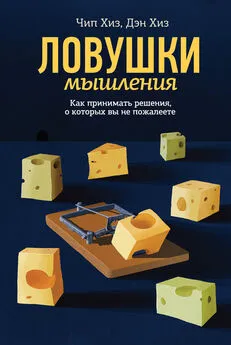
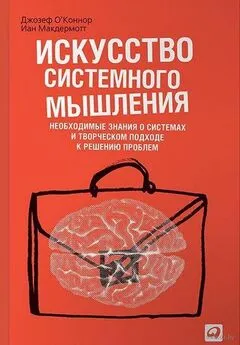
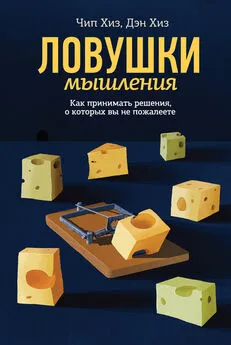
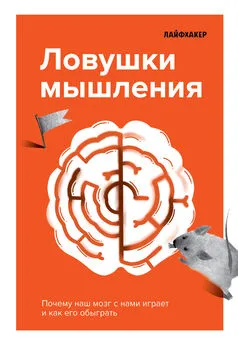
![Константин Муравьев - Перешагнуть пропасть: Клан. Союзник. Мир-ловушка [книги 5-7] [сборник litres]](/books/1075097/konstantin-muravev-pereshagnut-propast-klan-soyuznik-mir-lovushka-knigi-5-7-sbornik-litres.webp)
